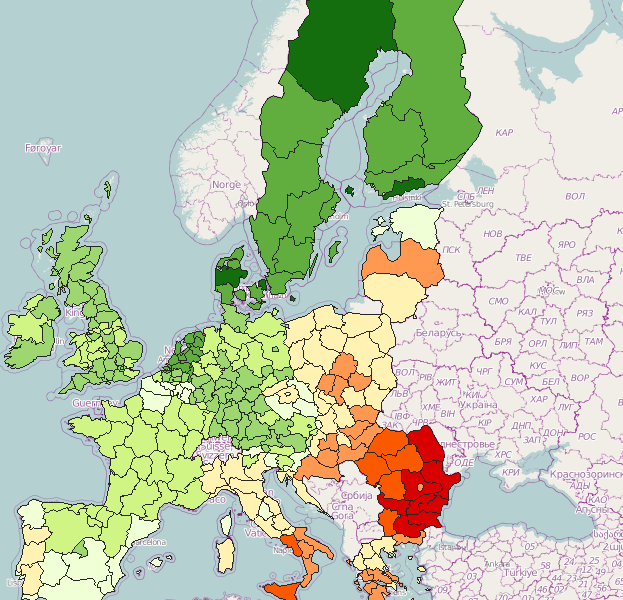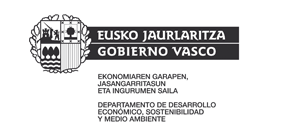16 February 2016

This week the European Commission presented the BETA version of the Regional Social Progress Index project, which aims to measure social progress in 272 European regions. The project, which was presented during the Open Days last October, stems from the cooperation between the European Commission’s DG Regional and Urban Policy, the Social Progress Imperative and Orkestra-Basque Institute of Competitiveness.
This index looks to go a step further in the measurement of the gross domestic product (GDP) of each region, evaluating other variables that help identify and improve the well-being of citizens, from a more social o environmental perspective. As stated by Susana Franco, researcher and coordinator of the research area on Sustainable Socio-economic Progress at Orkestra, in the blog #BeyondCompetitiveness “the indicators of this index are grouped around a single framework that contains three dimensions (basic human needs, foundations of well-being and opportunity)”.
The measurement of social progress looks to provide information for the development of strategies and policies in European regions. With this index, the European Commission aims to help prioritise questions that are covered in its cohesion policy programme. The idea is that it acts as a solid reference so that the European Commission’s services valuate whether the programmes for the 2014-2020 period deal with the appropriate topics in the appropriate places. Additionally, the regions can use it to guide the policies that are financed with their own funding.
The analysis of the Social Progress Index, keeping in mind its three dimensions, in the Basque Country, concludes that this territory is found in an intermediate position below regions of Nordic Countries, Germany or Britain and above regions of countries in the East and Southern Europe. Compared to the rest of Spain, with exception of Madrid, this region is in a much better position than its counterparts. Susana Franco pointed out that the results obtained up until the date “are quite surprising as we expected greater variability within countries and we also expected that the Basque Country would be better positioned within Europe, especially in comparison with European regions with a GDP similar to ours. It is worth keeping in mind that the data is lacking in some places as the available information at a regional level in Europe is not abundant. For this reason, in some countries national data has been used for some indicators and, in others, perception surveys have been used. Nevertheless, the index constitutes a good starting point to evaluate our strengths and weaknesses”.
This project has been circulated so that the parties concerned can give their opinion on the topics, indicators used and the way in which they are combined in a single punctuation for each region. Observations and questions can be sent to: regio-papers@ec.europa.eu. In October, 2016 a revised version of the regional Social Progress Index will be published.












